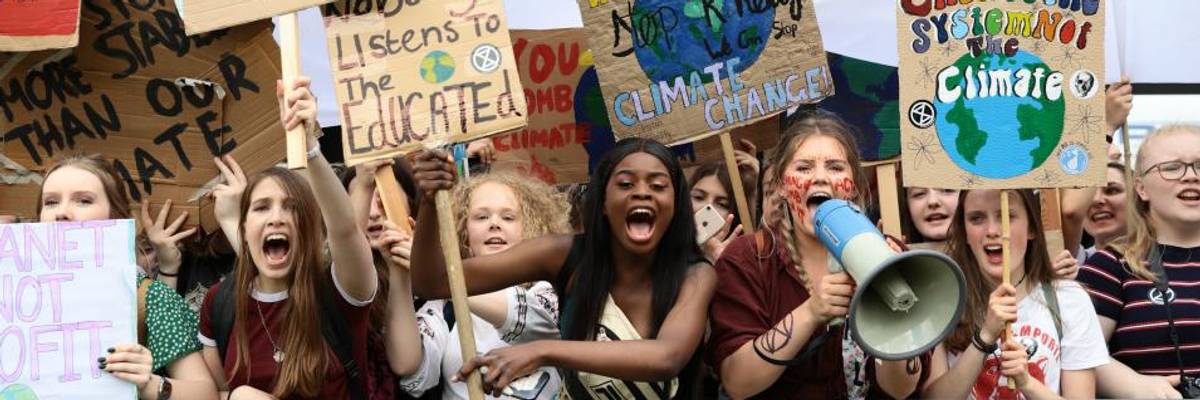As an estimated 1.8 million people in 125 countries took part in a global climate strike Friday, researchers delivered good news about such protests: they work.
A psychologist at Penn State University led a study examining the public perception of two climate marches which took place in over the course of a week in 2017 and found that bystanders who observed the demonstrations came away with the belief that protests can make people more optimistic about the possibility of effecting change.
"Marches serve two functions: to encourage people to join a movement and to enact change," lead author Janet Swim said in a statement. "This study is consistent with the idea that people who participate in marches can gain public support, convince people that change can occur, and also normalize the participants themselves."
Supporters of recent climate strikes that have taken place all over the world were buoyed by the findings.
Swim focused her research on the March for Science and the People's Climate March, both of which took place in April 2017 as the scope of the Trump administration's attack on climate science was becoming clear.
As the researchers asked survey participants about their impressions of the marches before and after they took place, they found that observers were more likely to have positive views of protesters and of people's ability to work together to fight the climate crisis.
Although researchers found that some participants had expressed negative views of protesters in general before the marches, after the People's Climate March they were less likely to view marchers as "arrogant or eccentric or otherwise outside of the norm," Swim reported.
Observers who said they consumed news via conservative sources had more "collective efficacy beliefs" after the marches, meaning they were more likely to believe that collective action could be effective and to have plans to participate in protests themselves.
The research was released as students and workers around the world were taking part in thousands of demonstrations in the second global climate strike since March.
Recent mass climate action demonstrations have supported the beliefs of participants in Swim's study, that collective action can effect change.
Weekly climate marches in countries around the world, led by 16-year-old organizer Greta Thunberg, helped secure a pledge from European Commission president Jean-Claude Juncker to spend a quarter of the European Union's budget on combating the climate crisis starting in 2021.
The governments of Scotland, Wales, England, and Ireland also declared climate emergencies over the course of a few days after the global grassroots movement Extinction Rebellion occupied landmarks in April to demand that lawmakers "tell the truth" about the climate crisis.




